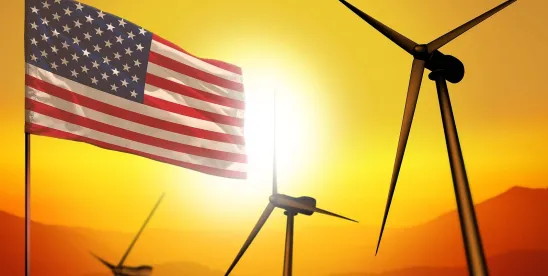On March 20, 2025, House Republicans passed the “Big Beautiful Bill” (BBB) as part of H.R. 1, a sweeping legislative package that includes dramatic rollbacks of many of the clean energy tax credits established under the Inflation Reduction Act (IRA). While the bill has little chance of advancing in the Senate in its current form, its proposed cuts offer a window into shifting political priorities and could have significant implications for the U.S. clean energy manufacturing sector.
Subtitle C of the bill, titled “Make America Win Again,” proposes to sunset, repeal, or restrict nearly every major clean energy tax credit under the IRA. Among those affected are credits for clean vehicle purchases (Section 25E), commercial clean vehicles (Section 45W), alternative refueling infrastructure (Section 30C), residential energy efficiency improvements (Sections 25C and 25D), new energy efficient homes (Section 45L), and advanced manufacturing (Section 45X).
For manufacturers, the most potentially damaging proposals are those that target the clean electricity production and investment credits under Sections 45Y and 48E, and the advanced manufacturing production credit under Section 45X. The bill would not only accelerate the phase-out dates for these credits but would also impose new restrictions on facilities and companies that receive any form of “material assistance” from so-called “prohibited foreign entities,” including entities with even minor Chinese ownership or influence.
These foreign entity provisions mirror similar restrictions proposed in standalone legislation like the BIOSECURE Act, which passed in the House, but stalled in the Senate, and represent an aggressive policy shift toward economic decoupling. The expansive definitions of foreign influence and the scope of the restrictions in the BBB could have a chilling effect on clean energy investment, particularly in sectors like solar panel and electric vehicle (EV) battery manufacturing, where global supply chains are deeply interconnected.
While reducing “dependence on foreign countries” is an easy political statement with bipartisan appeal, the interconnected economic ties developed over past decades have made it literally impossible to reverse in the near term, if ever. The statements by (and actions of) Apple regarding manufacturing of iPhones is but one example. Many industries have similar “impossible” to recreate supply chains, as intentional global interconnectedness has been part of U.S. trade and foreign policy. Closer to home, proposed tariff policies for the auto and other industries threaten to upset foreign relations with Mexico and Canada (even though current trade provisions with our North American neighbors were negotiated under the first Trump term).
In addition to severing incentives for manufacturers with foreign ties, the BBB repeals the ability to transfer clean energy tax credits under IRA Section 6418 — a key tool for helping smaller developers and manufacturers monetize credits and attract financing.
The BBB has sparked pushback from industry stakeholders, including Elon Musk, who argue that the IRA’s tax credits have spurred historic levels of clean energy investment and domestic manufacturing. According to the U.S. Department of Energy, over $120 billion in new manufacturing investments have been announced since the IRA’s passage. The proposed repeals and restrictions could significantly undercut that momentum.
Although the BBB is unlikely to become law in its current form, its provisions could resurface in future negotiations or budget bills. Industry participants should monitor legislative developments closely and consider how foreign ownership structures, supply chain dependencies, and tax credit planning may need to adapt to an evolving policy landscape.




 />i
/>i
